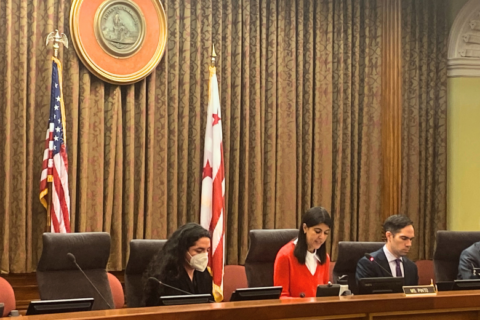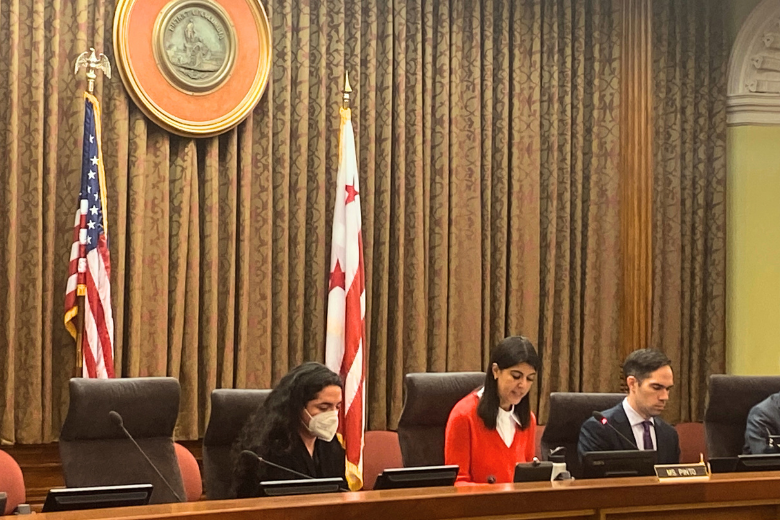
D.C.’s embattled Office of Unified Communications, which handles 911 calls and emergency dispatches, has been beset for years by ineptitude and fatal mistakes.
Efforts to turn the troubled agency around have led to progress, but a perception remains that things are not as strong as they should be.
Those perceptions were reinforced during an oversight hearing held by the D.C. Council Committee on Public Safety. Members of the public, including current and former ANC Commissioners, bemoaned errors and unreliability they’ve experienced for years and blamed not just the agency, but Mayor Muriel Bowser’s office and the D.C. Council.
Some argued the council has been uninterested in getting to the bottom of the problems.
“Just the other day, I heard from a neighbor who spotted a fire that was starting and decided to run to the fire station rather than calling 911,” said Ward 6 Council member Charles Allen. “The erosion of confidence in knowing someone is going to be there to answer the call is devastating, and changing that is going to take a lot of hard work, and it’s going to have to be a lot more than optimistic talking points and press releases from the executive.”
Ward 2 Council member Brooke Pinto, who chairs the public safety committee, said she made an unannounced visit to OUC this past Saturday evening and was frustrated by what she saw.
“There were only three Fire and EMS dispatchers who were present, when ideally there should be at least six,” Pinto said after the hearing. “Furthermore, there was only one EMS dispatcher handling dispatch for the entire city. I noted that there were only 15 call takers working that night, as four had called out.”
She called it both “unacceptable” and “extremely dangerous.”
“Staffing has to be a priority,” she said.
To that point, OUC Director Heather McGaffin said it has been.
Last week, she invited the media to visit the OUC ahead of Monday’s hearing and boasted about the hiring spree the agency has been on, which she said has reduced the number of shifts that went unfilled each day. Bonuses for showing up have also helped, but it hasn’t solved everything.
In September, only 29 of 54 shifts were fully staffed. In 19 of the 25 cases that they weren’t, the team was between one to four employees away from being fully staffed. But they were still 10 or more workers away from being fully staffed on three occasions.
During the hearing, McGaffin said the stress of the job is hard, and when she was a call taker, the emotional toll would sometimes wear on her.
“It’s a hard job, and think about your worst moment and then having to deal with that 60-70 times a day or more, and the stress of all the traumatic things,” she testified. “Every traumatic thing that happens in this city, someone at the OUC has a hand in dealing with. That’s just a lot of trauma.”
She said the hiring of a wellness coordinator has helped, but, at the end of the day, OUC employees are just people.
“Everybody that comes to work every day is facing challenges on the outside,” McGaffin said after the hearing. “They’re moms, they’re dads, they’re caring for parents or other loved ones, transportation, just general life things.”
Get breaking news and daily headlines delivered to your email inbox by signing up here.
© 2024 WTOP. All Rights Reserved. This website is not intended for users located within the European Economic Area.









